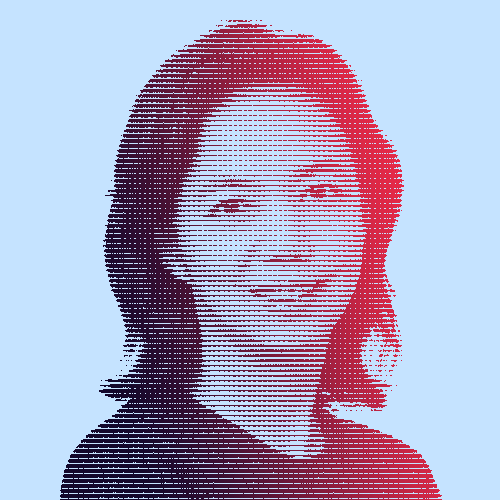American computer scientist Fei-Fei Li (1976) has helped take AI into a new age. Whether as Sequoia Capital Professor of Computer Science at Stanford University, founder of the ImageNet project, or in a multitude of other roles, Fei-Fei is constantly fostering diversity, inclusivity, and human values.
Fei-Fei Li grew up in Chengdu, China, before moving to the U.S. at the age of 15. Majoring in physics, she also studied computer science and engineering at Princeton University, all the while returning home most weekends to help at her parents’ dry cleaning store.
Her academic career took off as an assistant professor at the University of Illinois Urbana-Champaign and Princeton University. She then joined the staff at Stanford in 2009, later becoming an associate professor and director of Stanford Artificial Intelligence Lab (SAIL).
“I often tell my students not to be misled by the name ‘artificial intelligence’ – there is nothing artificial about it. AI is made by humans, intended to behave by humans, and, ultimately, to impact humans’ lives and human society.”
Human-Centered Artificial Intelligence
Committed to breaking down barriers in AI, she took a year off from Stanford to join Google Cloud as its Chief Scientist of AI/ML and help democratize AI technology. It was there that she developed AutoML to apply machine learning models to real-world problems through automation.
It didn’t stop there. Set on increasing the number of women and people from different ethnic backgrounds in AI, she co-founded AI4ALL, a nonprofit organization focused on diversity and inclusion. Its mission? To educate the next generation of AI technologists, thinkers, and leaders through human-centered AI principles. Taking this commitment one step further, in 2019, she co-founded the Stanford Institute for Human-Centered Artificial Intelligence (HAI) to advance AI research, education, policy, and practice to improve the human condition.
“If our era is the next Industrial Revolution, as many claim, AI is surely one of its driving forces.”
Pushing the Limits of Visual Recognition
Covering AI, machine learning, deep learning, computer vision, and cognitive neuroscience, her research is packed into more than 300 peer-reviewed research papers. Determined to expand and improve the data available to train AI algorithms, she launched ImageNet — a vast visual database designed for use in visual object recognition software research.
In recent years, her research has expanded into AI and healthcare, including how to reduce medical errors and improve the benefits of “ambient intelligence” — physical spaces that are sensitive and responsive to the presence of humans.
Key Dates
-
2009
The ImageNet Contest
Since being presented, ImageNet has gathered more than 14 million images, which have been hand-annotated (through crowdsourcing) to indicate what objects are pictured.
-
2015
And AI4ALL
Fei-Fei Li co-founds SAILORS, an annual summer camp at Stanford dedicated to ninth grade high school girls in AI education and research — laying the foundations for AI4ALL.
-
2020
Member of the NAE
Fei-Fei Li is elected a member of the National Academy of Engineering (NAE) for her contributions in building large knowledge bases for machine learning and visual understanding.




